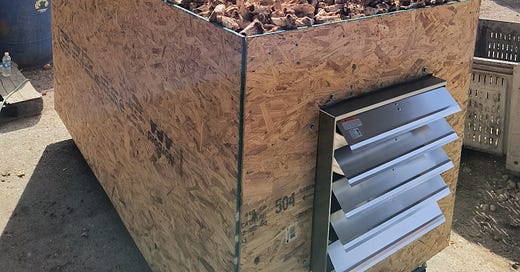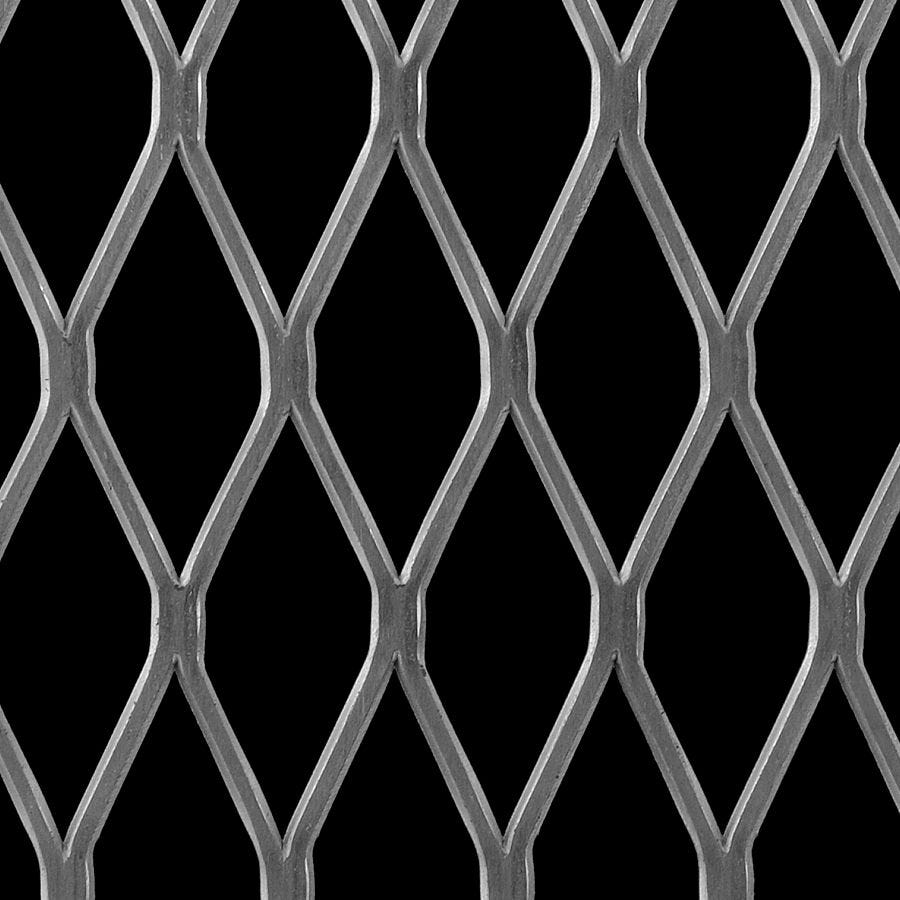Happy 2024!
My prediction is that this is going to be a BIG year for developments in decentralized water treatment! New partnerships, new research projects, new analytical methods, and we’re building a new laboratory!
As always, we appreciate your comments, feedback, and questions. Here’s to a new year advancing drinking water that is pleasant, safe, and healthy!
Anyone who has experimented with making biochar for any purpose - in particular, for making biochar adsorbent for water treatment - has noted that the moisture content of the feedstock exerts a major effect on the process.
For most biochar generation endeavors and especially for making biochar adsorbent, it is imperative to start with as dry a feedstock as possible given your circumstances.
Drying feedstock means driving off excess moisture, which can be a challenge given energy requirements. Here we’ve developed a relatively low cost, low energy-input system for getting feedstock drier prior to charring.
This system works simply by moving air using an exhaust fan - so, very low energy (electricity) requirements compared with active heating of the material.
Feedstock drier being used to dry bones from a soup broth producer for making bone char for fluoride removal.
This dryer won’t get feedstocks - pardon the pun - bone dry. How dry is “dry” is a function of local temperature and relative humidity conditions. But it will get things substantially drier with very low energy input.
The principle is simple: moving air over and around the material pulls away moist air and replaces it with drier air, promoting more moisture evolution from the material. Sweeping away the moist air to be replaced by dry(-er) air. That’s it. But in a dry climate it’s possible to get feedstock down to ~10% moisture simply by moving air. Even in a humid climate a significant amount of moisture will be removed. For low cost in materials and electricity and with only a little labor.
How to build it
This unit is a 4’ x 4’ x 8’ box made from OSB (often colloquially but somewhat incorrectly called “plywood”) with an expanded/flattened metal grate on top and an exhaust fan mounted on one vertical end.
The expanded metal grate supports a layer of bones, or wood chips, or whatever biomass is desired for drying prior to making biochar. The exhaust fan draws air down through the biomass into the wooden box and pushes it out the side. Here we have mounted the whole contraption onto a couple of pallets so that it’s easy to move around the work site using a forklift, skid steer, tractor, or whatever machine using a forked implement.
Just pile your feedstock on top of the expanded/flattened metal grate, turn on the fan, and let it dry for a day or two or three. You’ll be surprised how much this can improve the biochar making process.
A few notes on materials
Expanded metal of a heavy-enough gauge makes a good grate to support the feedstock you load onto it. Expanded and flattened metal is smoother, and therefore is easier to unload with a shovel.
Expanded/flattened metal grate - note the smooth joints. In normal expanded metal the joints are raised and so not as easy to shovel biomass on-and-off-of.
Use a heavy gauge expanded/flattened metal grate for strength. If the gaps are too large for you feedstock, overlay a metal mesh wire screen on top of the metal grate to keep bits from falling through.
How much air do you need to move? Good question! This is best worked out with a little experimentation in your particular circumstance. Currently our bone char unit uses one 24” exhaust fan purchased from Amazon like this one:
A dryer unit like the one shown in the photo above could accommodate up to six fans like this one. That’s a lot of air movement! Six fans would probably be overkill, but you get the idea. One or two fans should be plenty for most applications.
How much does it cost to build?
If you’re a diligent scavenger and obsessive scrap-hound it costs next-to-nothing. If you have to buy all the materials new here’s a cost estimate from current Amazon and US “big box store” prices:
lumber (2”x4”s and 7/16” OSB sheets) and fasteners - $150
4’ x 8’ expanded/flattened metal grate - $80
one or two 24” exhaust fan(s) - $200 ea.
So around $500, give or take.





